The real Anthony Albanese stands up
Despite a rocky start to the campaign, he is eager to reassure voters he has the experience to lead. What drives the man who wants to take on the most difficult job in the country?
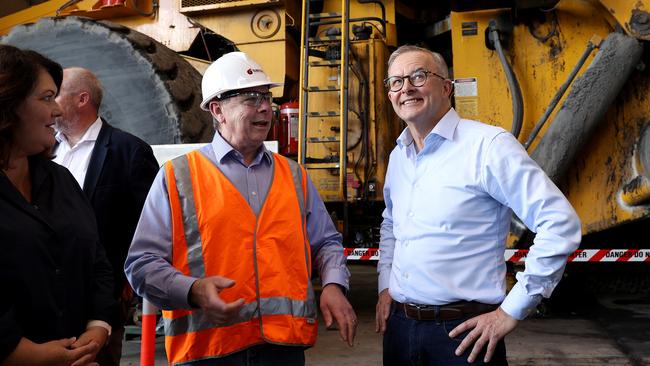
Anthony Albanese, despite a rocky start to the election campaign, is eager to reassure voters he is ready for the prime ministership and styles himself as a “safe” leader with experience in government who offers a policy agenda that is “smart” rather than “small” and tailored “for the times”.
In a lengthy sit-down interview with Inquirer, the Labor leader spoke about economic policy and national security, his personal journey, political strategy and, if he is entrusted to form a government after May 21, how he would lead as prime minister.
“Prime ministers at their best seek to bring the country together and seek unity rather than division and accept responsibility,” Albanese, 59, tells Inquirer. “People want a national leader who rises above the day-to-day frays … Labor’s offer for the Australian people is about a better future and we have a coherent series of reforms out there for the next term.”
Yet many voters remain undecided about Labor and its leader. Albanese is not that well known, Labor’s policies are not all convincing, the party lacks a compelling narrative for change, and voters may stick with “the devil they know”. Further, voters with memories of the Rudd-Gillard years may baulk at returning Labor to power.
But Albanese insists lessons have been learnt from the party’s last period in government.
“Just as the Hawke government had benefited from the experience of the Whitlam government, a government that I lead, if I have the opportunity to do so, will benefit from the experience of Kevin Rudd and Julia Gillard,” Albanese says.
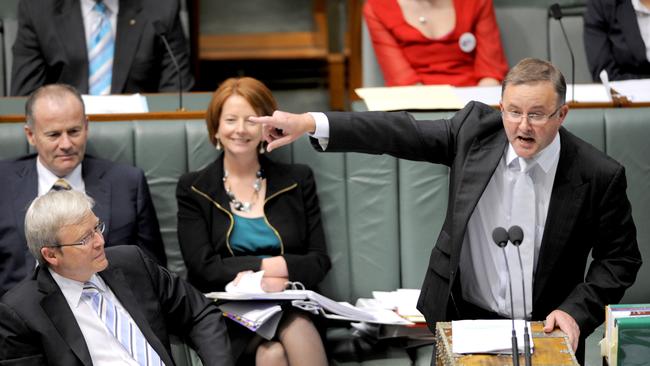
Rudd, his colleagues said, ran a dysfunctional and chaotic government that centralised decision-making. He was often late for meetings, appointments were cancelled at the last minute, letters were not responded to, memos sat unread in bulging in-trays, and ministers were shut out. He was ejected before he could lead the party to re-election.
“It was a difficult period,” Albanese acknowledges. As a result, he says he has thought “a lot” about how to run the cabinet, work with the public service and manage the prime minister’s office. He will not repeat the Rudd-era kitchen cabinet, or “Gang of Four” as it was known, that locked in decisions before cabinet meetings. He has insisted on “proper process” in shadow cabinet.
“What I don’t have is a smaller group that meets and then is locked in before the shadow cabinet,” he says. “Shadow ministers are entitled to bring forward submissions without it being ticked off centrally by my office. I’ve conducted the processes that have encouraged people to have genuine debate.”
This is encouraging because campaigning is one thing; governing is another. Albanese says he will lead a government that is disciplined and focused, observes proper cabinet processes, and will not hesitate to take on unions or party factions or other “vested interests” if they operate counter to the national interest.
“I am on time for meetings,” he says. “We have meetings that are properly scheduled. We have proper processes in place and you need to do that (because) then you will get much more efficient outcomes.”
Albanese insists his team have also learnt the lessons from Labor’s last time in government. He says it is “the most experienced incoming Labor government in history”. He is right about that. He served in cabinet for six years and was deputy prime minister for a few months when Rudd toppled Gillard. He has been in parliament for 26 years.
Shadow ministers including Penny Wong, Richard Marles, Tony Burke, Bill Shorten, Tanya Plibersek, Mark Butler and Chris Bowen also served in cabinet. Jim Chalmers was chief of staff to Wayne Swan. Kristina Keneally is a former NSW premier and Katy Gallagher a former ACT chief minister. Experience matters, even if the Rudd-Gillard era was an omnishambles.
Pressed to confirm who will hold key ministerial portfolios in government, Albanese would only commit to Chalmers as treasurer and Wong as foreign minister. “I’m not going to go through all the portfolios,” he bristled. When asked to confirm only finance and defence, he refused. It is expected that Brendan O’Connor will be moved from defence and Marles will step into that role.
One of Albanese’s first actions if he becomes prime minister will be to find a new secretary of the Department of Prime Minister and Cabinet. Phil Gaetjens would not have the confidence of the new government. Gaetjens is a former chief of staff to Peter Costello and Scott Morrison as treasurers.
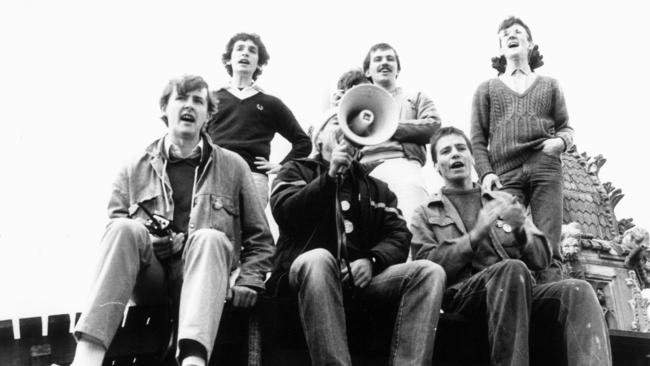
He was leading an inquiry into what the Prime Minister’s staff knew of an alleged rape inside Parliament House. Albanese believes Gaetjens has allowed the role to be politicised.
Asked about the appointments of a new governor-general and chief justice, whose terms expire during the next parliament, Albanese refuses to say. He would not be drawn on diplomatic appointments either (Rudd is rumoured to want Washington). And nor would he confirm living in The Lodge. “I am not getting ahead of myself,” he says eight times in reply to these and other questions.
He did confirm, however, that there would be no royal commission into News Corp or any other media outlet, delivering a killer blow to Rudd’s campaign.
“I have ruled out a royal commission into News Corporation,” Albanese says. “At this point in time I can’t see a case for any other regulation or inquiries.”
Labor would proceed with a constitutional referendum to establish an Indigenous voice to parliament, as recommended in the Uluru Statement from the Heart, in its first term. “Yes, that is my absolute objective,” Albanese says.
He also remains committed to a republic but prioritises the voice. “I don’t think that you can have an Australian head of state before you recognise that this country’s history didn’t begin in 1788,” he adds.
As voters weigh up the merits of re-electing Morrison’s Coalition government or electing an Albanese-led Labor government, they are also weighing up the two men. Leaders have never mattered more in politics. Voters look to their backgrounds, experience and values. They are symbols of their respective parties.
“What you see is what you get,” Albanese explains. “The son of a single mum who grew up in public housing in Camperdown (in Sydney’s inner west). I was given opportunities in life, so I understand the idea of aspiration for a better life – that is what my mother had for me.
“I was raised with three great faiths: the Catholic Church, the Labor Party and South Sydney Rugby League Football Club. Tom Uren was my mentor. He said to me that you’ve got to learn something new every day and you’ve got to grow every day.”
Indeed, Albanese was a hard-left firebrand in the 1980s and 90s while working as a staffer, Young Labor president and NSW Labor assistant secretary. He was a critic of the Hawke-Keating government’s economic reforms, including fiscal consolidation, tariff reductions, privatisation, exporting uranium and introducing HECS.
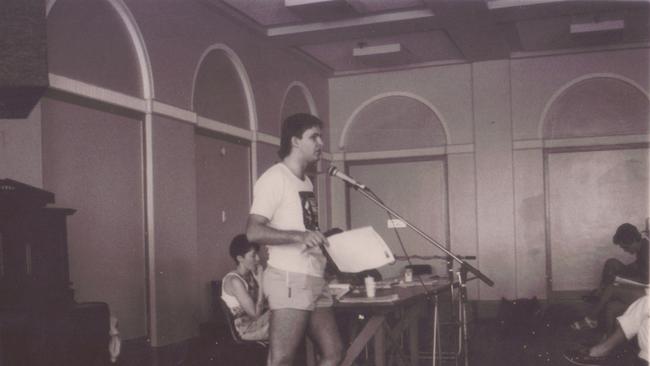
“I’ve tried to grow,” Albanese says. “I don’t have all the same views I had when I was 20 or 25. That’s a good thing. But, I also think, as a person I tried to grow.”
When I interviewed Albanese six months ago, I described him as “a hard man with a soft heart”. He thought that was “a fair assessment”. He did have a chip on his shoulder and held grudges when he was younger. He has mellowed a bit.
The smoothing out of Albanese’s rough edges has coincided with a makeover. He has shed about 18 kilos in the past year, chooses his food carefully, and exercises more. He has stylish new glasses and better-fitting suits. The dental work was done years ago.
Bushfires, floods and a pandemic has made it hard for Labor to cut through and grab voter attention. Labor is running a campaign that is focused on the Coalition’s policy blunders, backflips and broken promises, and targeting Morrison personally, rather than putting forward an ambitious agenda of its own.
Albanese rejects the “small target” characterisation. He says Labor has a “considerable policy agenda”. Labor has jettisoned many of the policies it took to the last election. Nevertheless, Albanese highlights initiatives on climate change and energy, child care, aged care, manufacturing, workplace relations, the NBN, housing, infrastructure, education and skills.
“It is an agenda for the times,” Albanese says. “We are offering a change that can be delivered in our first term.” He adds: “I am still a friend of Kevin Rudd and Julia Gillard – but the weakness was that we weren’t able to maintain a long-term Labor government, which is how you change the country permanently.”
The perception that Labor cannot manage the economy as well as the Coalition is a challenge Albanese must overcome. “We need to sell our message much better that Labor governments – if you look at the serious economic reforms and the serious measures that are put in place – have transformed the nation,” Albanese says.
Asked if he would match the government’s estimated spending (27.2 per cent of GDP) or taxation (23.8 per cent of GDP) in the next financial year, Albanese promises only to grow the economy and spend and tax more wisely. “We are not about spending more and taxing more; what we are about is making sure over a period of time (that) we have growth in the economy,” he says.
Convincing voters that Labor can be trusted on foreign policy and defence has been another challenge for Albanese. The opposition insists there is little difference with the government on key issues. Albanese would visit Japan for the next Quad meeting and says Indonesia would be a “priority” for an early visit as prime minister, along with New Zealand and the US.
Asked if Australia would support a US request to defend Taiwan against an invasion by China, Albanese first says “I can’t imagine Australia not being in lockstep with the US” but quickly adds he will not be drawn on hypothetical scenarios and says the “objective” should be to “avoid conflict while supporting the status quo”.
It has not been a good week for the Labor leader, who could not name the unemployment rate or the Reserve Bank’s official cash rate, claiming to have been an economic adviser to the Hawke government, and cutting a media conference short after promising to answer all questions. Albanese needs to sharpen up his campaign.
Asked if he expects to lead Labor to victory and become the 31st prime minister, as the polls suggest, Albanese did not want to make a prediction or take anything for granted.
“We will leave that to the Australian people,” he replies.
“We will put forward a strong agenda and if we do receive the support, I’ll work each and every day to justify the faith that that represents of being elected to higher office in this country.”


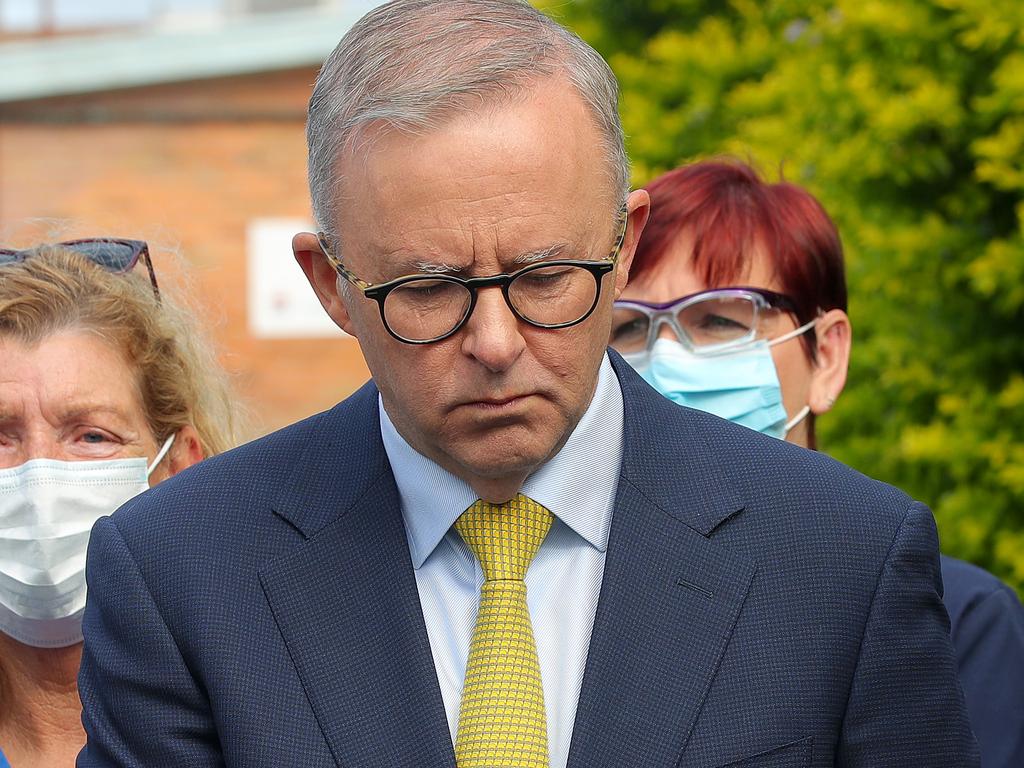
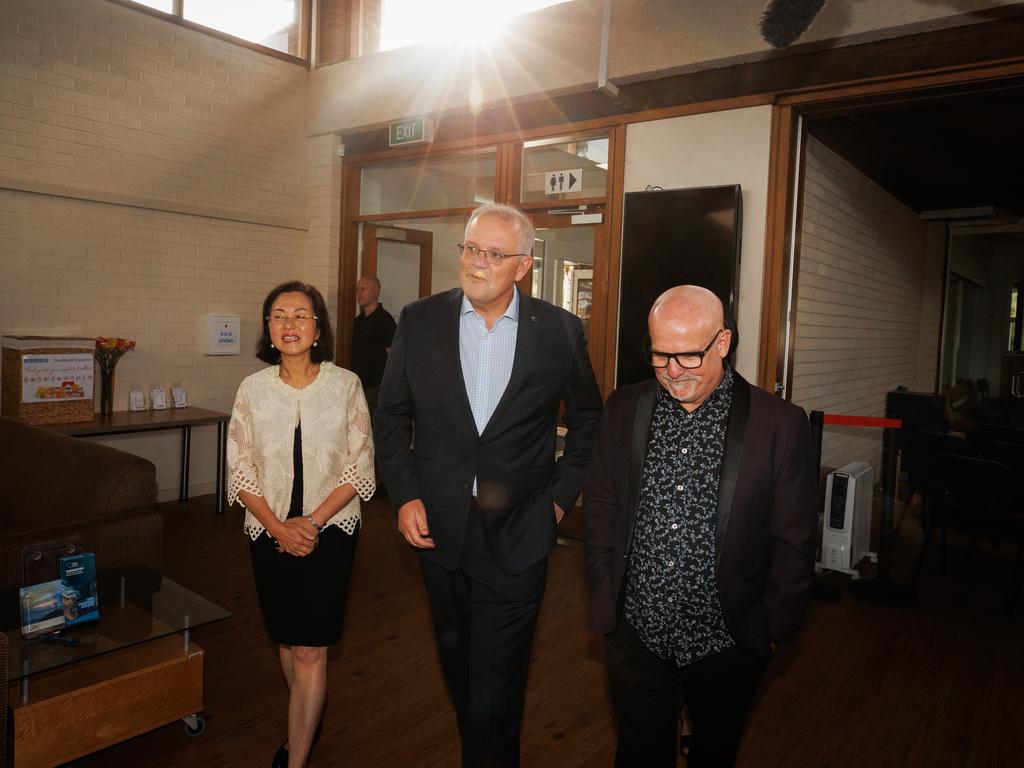

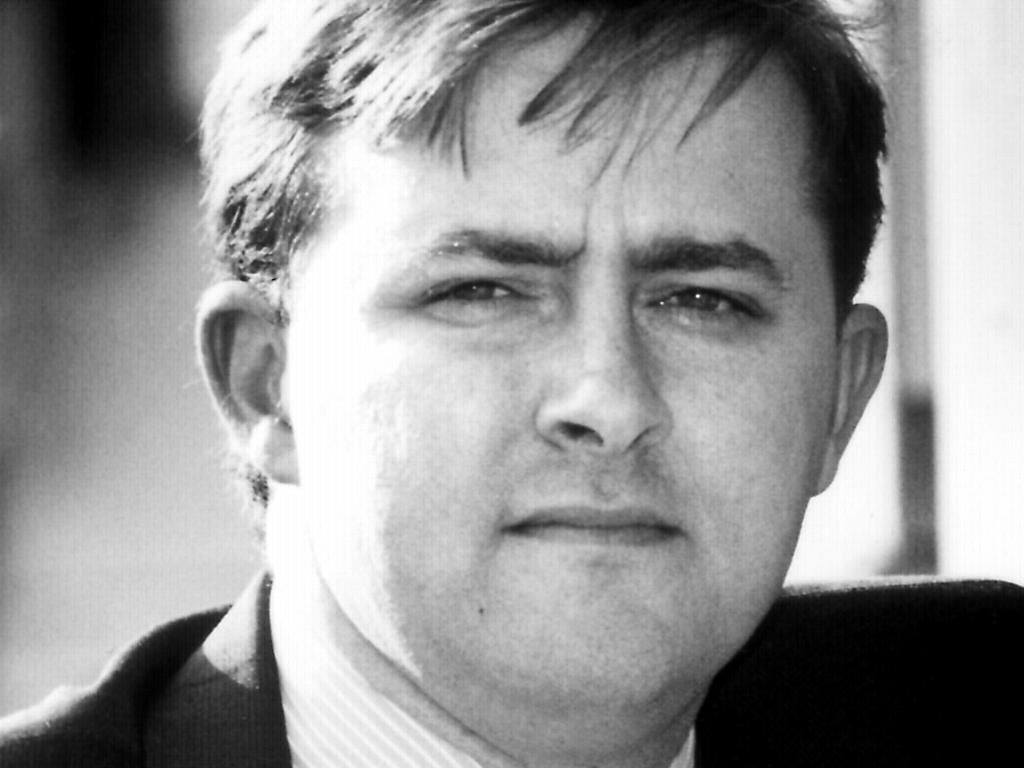


To join the conversation, please log in. Don't have an account? Register
Join the conversation, you are commenting as Logout